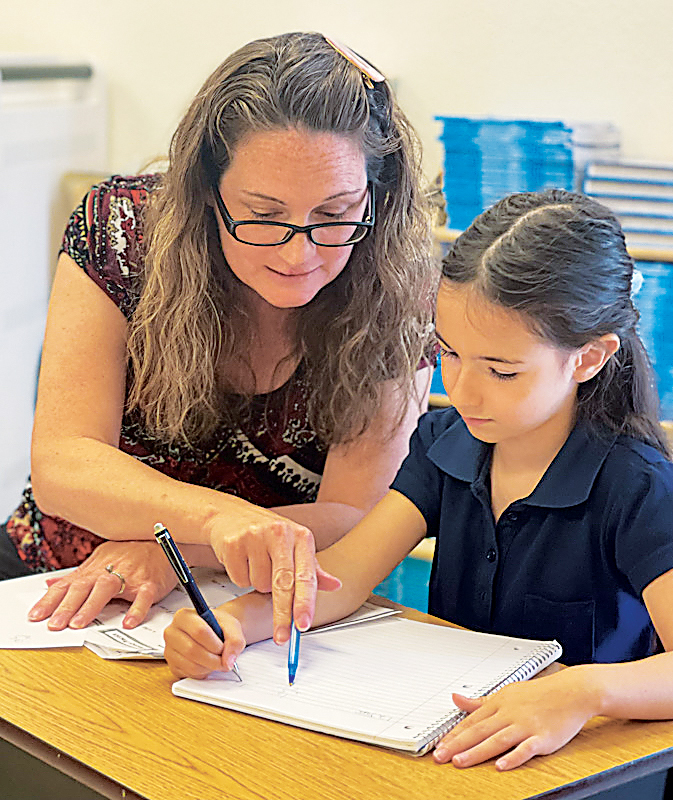It is hard to believe that schools are already in the midst of their third school year in a post-pandemic era. While schools across the nation adapt to address learning gaps because of online learning and high levels of absences during quarantine, teachers and administrators have also discovered an unexpected secondary result of pandemic learning.
Students returning post-pandemic have higher levels of disciplinary issues and low levels of fundamental student skills such as note-taking, task management, organization, and study skills.
What can be done to address these complex and widespread needs in both academics and behavior? The answer lies in a strong partnership between parents and schools. Though the problems faced by schools are new, research from as early as the ‘80s has documented that “parent involvement in children’s learning is positively related to achievement…This holds true for all types of parent involvement in children’s learning and for all types and ages of students.” (Colton, 2-3).
The most crucial tool for parent involvement is active communication between teachers and parents. While it may have once been enough to ask students how they are doing in class and if they need any help, no longer is this type of inquiry adequate. The best source for that information regarding student performance is the student’s teacher.
Communication between parents and schools needs to be multifaceted. Very rarely should communication come from a single source. Proactive schools should reach out in hardcopy methods, like letters home and written progress reports; verbal conversations, both in formal meetings, such as parent teacher conferences and in more informal moments, like phone calls or chats before or after school; and digital communication such as emails, classroom workspaces such as Google classroom, and onlinegrading systems.
Early communication and quick parent responses are pivotal to effective communication. Proactive parents should, at the very least, check student grades once a week. They should also check the email account they registered with their student’s school to be sure they have the most up-todate information. When it comes to behavior management, it helps schools when parents work together with teachers to reinforce behavior expectations and corrections. Schools desperately need parents’ trust when reaching out about behavior issues. Similar to children of split households, student behavior can often vary between home and school, as it does from parent to parent.
Certain behaviors might never occur at home, but if the school is reaching out about it, it has become an issue for them. If parents and schools are on the same side of behavior issues, consequences and corrections become much smoother and more effective than when the school must reinforce alone. Parents should enforce these at home.
Parents can also be advocates for the school by modeling desired behaviors and sticking to and defending school disciplinary decisions. Frequently student behavior escalates when parents contradict the school when students are at home or, to an even more destructive effect, outrightly insult the school or teachers in the student’s presence. If parents truly have concerns about school policy or other occurrences, they need to reach out to the school, not complain to their students. Not only does that further inflame negative behavior at school, but it also means parent concerns won’t ever be addressed if the school is not made aware.
It is also worth noting that students pick up on many subtle indicators about their parent’s attitudes toward education in general based on their parent’s actions. Post-pandemic, schools have had an increase in student absences related to long vacations during the school year. While it is relatively harmless to miss a day or two at the beginning or end of a long weekend, extended absences of a week or more can negatively impact students in many ways.
The best way to help students is for parents to model the desired behaviors. Students will benefit from parents exemplifying good study habits and organization. For example, if parents and schools wish students to read more or improve their reading skills, parents should read with their children or be seen reading on their own time.
All in all, there are numerous ways parents can work together with schools to ensure their students’ success academically and behaviorally, but they are all rooted in proper communication. Like all conversations, this communication must extend both ways, from parents to teachers and teachers to parents. Parents must also put in the work at home to bolster the school while teaching their students their way. Together as partners in education, parents and schools can strengthen their students and improve educational outcomes.
For more information and to schedule a tour, please contact the Front Office at (480) 641-2640. We have been proudly serving Mesa for over three decades.




